San Cha, The Fierce Latinx Musician Anchoring Herself in Rancheras and Identity
San Cha on being queer, brown and singing rancheras through it all.
Loud music played over Club Chico’s dance floor as equally clamorous bodies huddled together on a cold December night in Montebello, California. The cause for celebration was renowned Limp Wrist frontman Martin Crudo’s 50th birthday party, and those who turned out — were turning way up. The Latinx gay bar was packed with a random assortment of drag queens, punks, cholos, and belligerent bodies all wanting to dance.
The place was in full effect when the music suddenly stopped. Confused faces turned towards the DJ in bewilderment, as if to ask, “what’s the meaning of this?” Standing in the corner was a femme clad in black, holding a guitar. The crowd simmered down and focused their attention on the alluring musician, who softly began to strum her instrument while belting out the first line of Selena’s mariachi classic, “Tu Solo Tu.” The crowd immediately applauded and broke out in cheers as they revered the powerful presence that hijacked their night.
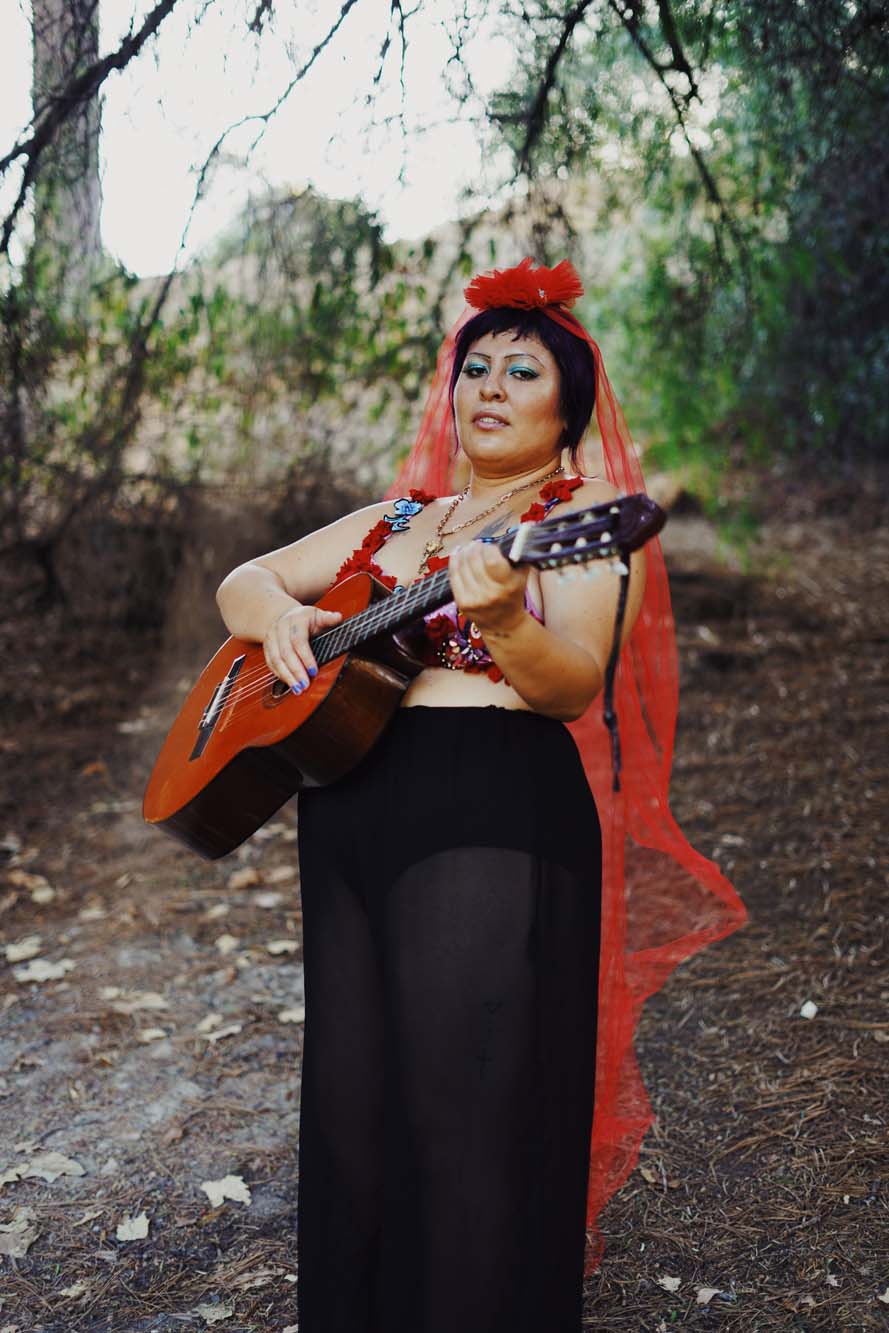
That voice — fiercely echoing throughout the building and reverberating through the senses of those lucky enough to witness it (including myself) — belonged to San Cha, a Latinx musician from the Bay Area (now based in Los Angeles), who writes, produces, and performs her own music. Born Lizette Gutierrez, her stage name is a play on the Spanish words “san,” which means saint, and “sancha,” a mistress, or a side chick. The alias is a surprising choice for the Catholic-raised artist, who grew up in a traditional Mexican household.
“Oddly enough it was my mom who kind of inspired it,” San Cha said. “She was telling my Filipino friend, my best friend at the time, what a sancha was … and I don’t know what came over me, but I was like, oh my god I need to write this down … It was kind of weird at first because I was like, why would you call yourself sancha? That’s like basically calling yourself a puta you know?”
For San Cha, the anti-hero qualities of the word were significant. She felt too removed from godliness to think of herself as pristine, but by using a saint figure, she had room to negate significations of wholesomeness and perfection. This moniker ultimately made the most sense to her.
“You pray and go to them for very specific things … At the end of the day, yeah I wanna call myself that, as someone you can lose yourself with for a little bit,” she said.

San Cha began pursuing music from a young age, starting with her church’s choir and later dedicating her young adult years to lo-fi alternative and electro acts. It wasn’t until she moved to Mexico that she discovered her calling: rancheras.
At 27, San Cha made the decision to leave the Bay Area amid rising rent costs, gentrification, displacement, and an emotionally abusive mentor/employer – a decision she now credits as one of the best she ever made. She took refuge at her aunt Maria de la Luz’s farm in Jalostotitlan, Jalisco, and promptly started working on new music with help from friends in the area. San Cha’s aunt didn’t simply give her a place to stay however, she was also instrumental in helping San Cha realize her passion.
“My tia at that time was like, ‘I don’t know what you’re doing over there with those weird people and writing that weird music, you need to be singing rancheras, that’ll make you famous. I don’t know why you’re even bothering with that other stuff,” San Cha said.
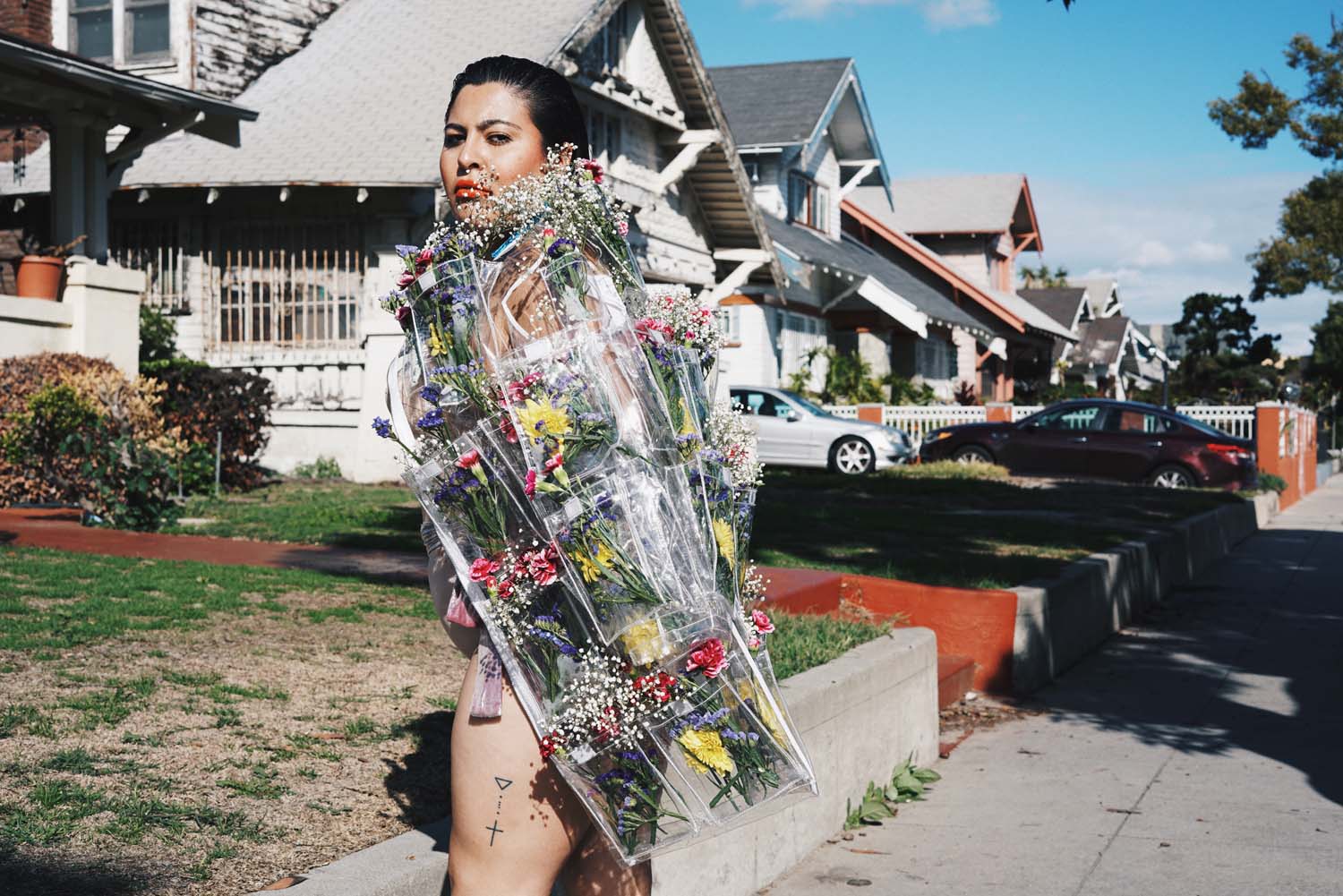
San Cha’s aunt frequently alluded to renowned Mexican ranchera artist Pepe Aguilar, who initially aspired to be a rock musician. Aguilar’s venture to emulate his rock ‘n’ roll heroes was a failure, but he went on to become one of the most famous ranchera singers in the game. This added fuel to San Cha’s momentum as she attempted to master the genre.
“I had tried singing them, and for some reason I couldn’t belt out those long notes. I guess my voice just wasn’t ready … So at that time I thought, ‘tia, I can’t even sing this music and you’re asking me to sing it.’ But when I recorded it, I was like ‘oh, I guess I can do it,’ and that’s when I really started singing with confidence … I don’t know what it was, but it wasn’t until then that it really clicked,” she said.
San Cha’s time in Mexico helped add the missing touches to her music. It inspired her and cohesively intermingled her queer and Latinx identities — the latter which was often neglected in the Bay Area. According to San Cha, the Bay was not always inclusive to people of color as it is now. “We’d go out to all these other art bars, and we weren’t really respected, like we were seen as a joke in the bay, we kind of felt very, ‘ni de aqui, ni de alla’ at that time,” she said.*
“Being queer and brown is even more marginalized, and some of us have the same experiences with our families — being brown coming from a working class family, and maybe not being out to them, or taking forever to come out to them even though they already probably know, and having things to hide, and having weird catholic guilt, even though we’re not religious anymore.”
While San Cha embraces her intersectional identity and uses it to empower herself, she said it’s still a touchy subject for her family. Her mother is more or less supportive, but criticizes her lifestyle choices from time to time. Her parents also constantly pressure her to settle down and opt for a more traditional life: “It wasn’t until I was singing rancheras that they were like ‘oh this is good,’ but my parents in particular, they’re still like, ‘Cuando te vas a componer? A ver si un dia te arreglas,’ and it’s like I’m broken or something. I’m like, ‘I’m thirty this isn’t gonna change.’”*
San Cha’s parents have never seen her perform, but this doesn’t bother her. Not only have they openly expressed their discomfort, but their disapproval was further exacerbated by an incident in which a family member spread lies about San Cha’s persona. This person went to her mother and claimed San Cha was caught on camera doing explicit things while nude. San Cha’s mom immediately called her in tears.
“I had a photo of my ass and my legs up in the air, it was like a performance photo, and she was crying to me,” San Cha said. “She was like, ‘I can’t believe this,’ and I was like ‘mom, you’re not crying because Gloria Trevi is ripping her stockings or Alejandra Guzman is out there rolling around on the ground, this is all theatrics.’ I was like, ‘it’s performance and you’re not crying about them, and nobody else is crying about them, so you shouldn’t be crying about me.”
San Cha has come a long way since leaving the Bay Area, and all of these collective experiences ultimately resulted in her latest EP, “Capricho Del Diablo.” The heavy-hitting 6-track release amalgamates all of her influences to deliver captivating cumbias. The EP’s title, which translates to “the devil’s whim,” is her personal take on the idea of “the white devil,” the oppressor history has shown to subjugate minorities. When her aforementioned mentor tried to take advantage of her, San Cha refused to be oppressed. And she continues to subvert the chains of white patriarchal power.
“A lot of the album is inspired by that, and by white supremacy, really in the ways that we’re fooled into thinking that we need help from people like that, and how we let them hold power over us, like we owe them a debt,” she said. “I was really thinking about how people sell their soul for pop stardom and stuff like that, and how I was understanding that a little bit more, like ‘oh, the devil isn’t this mysterious creature, the devil is capitalism, and money, and white people.’ That’s how that played out for me.”
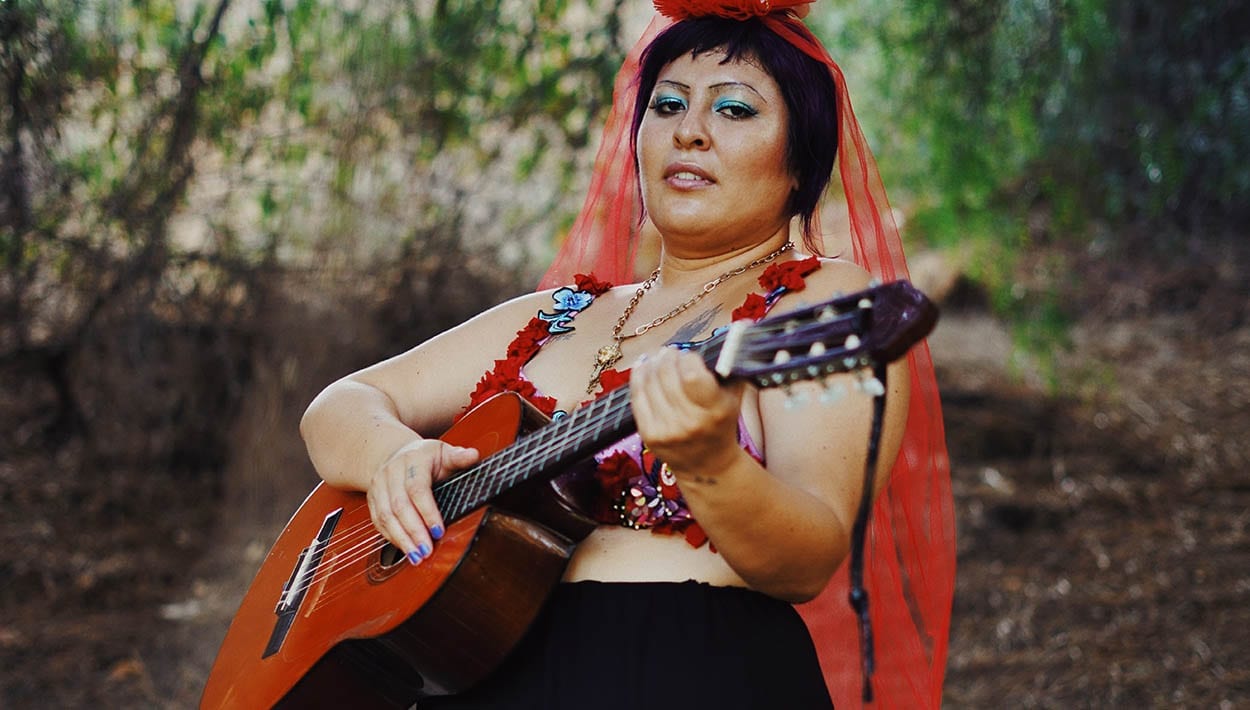



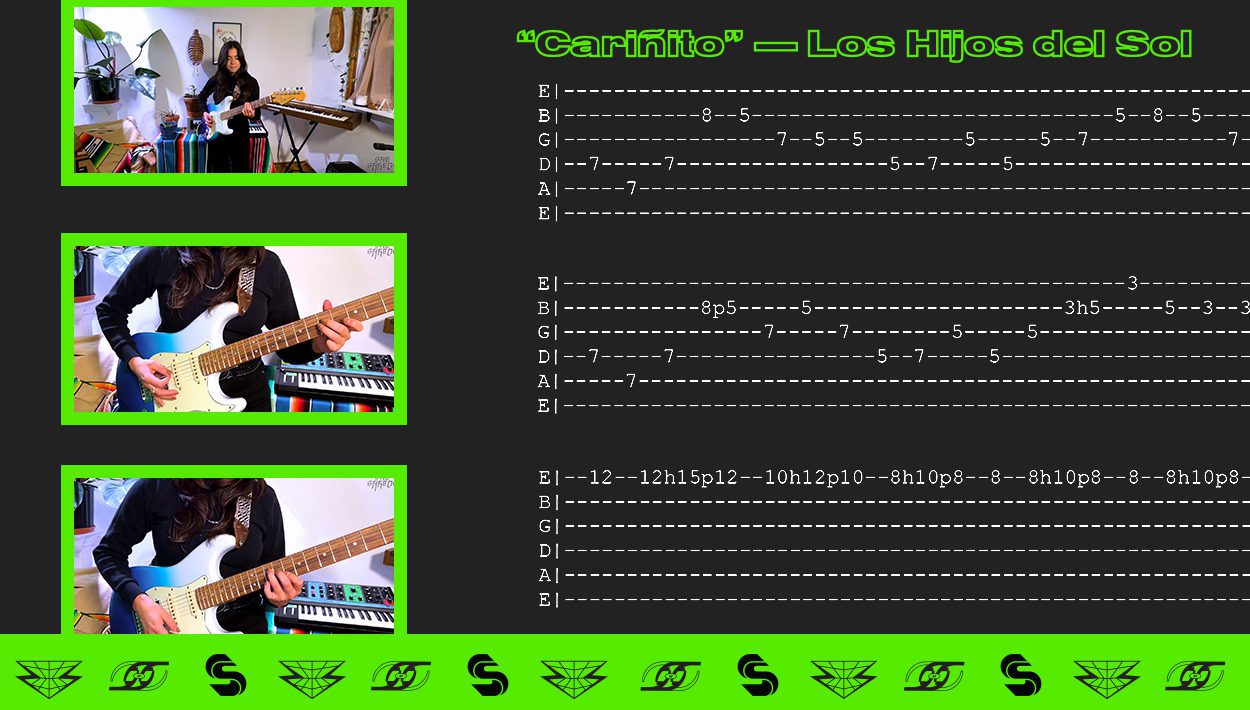



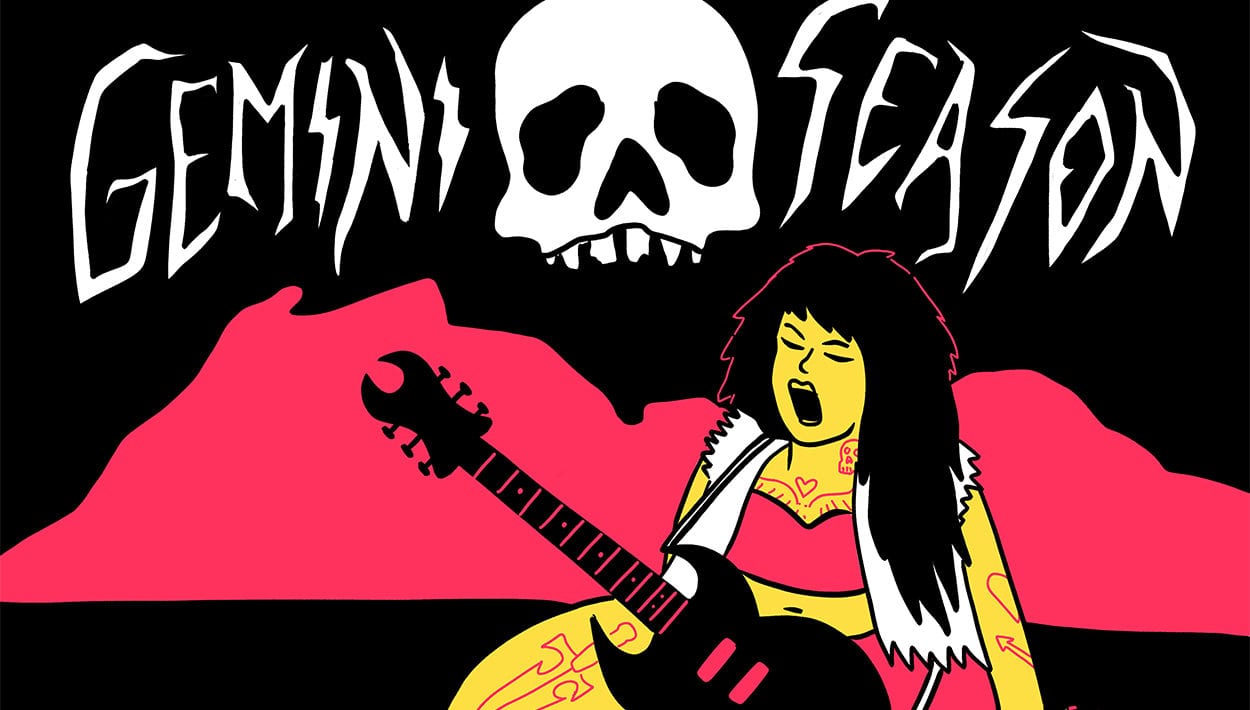


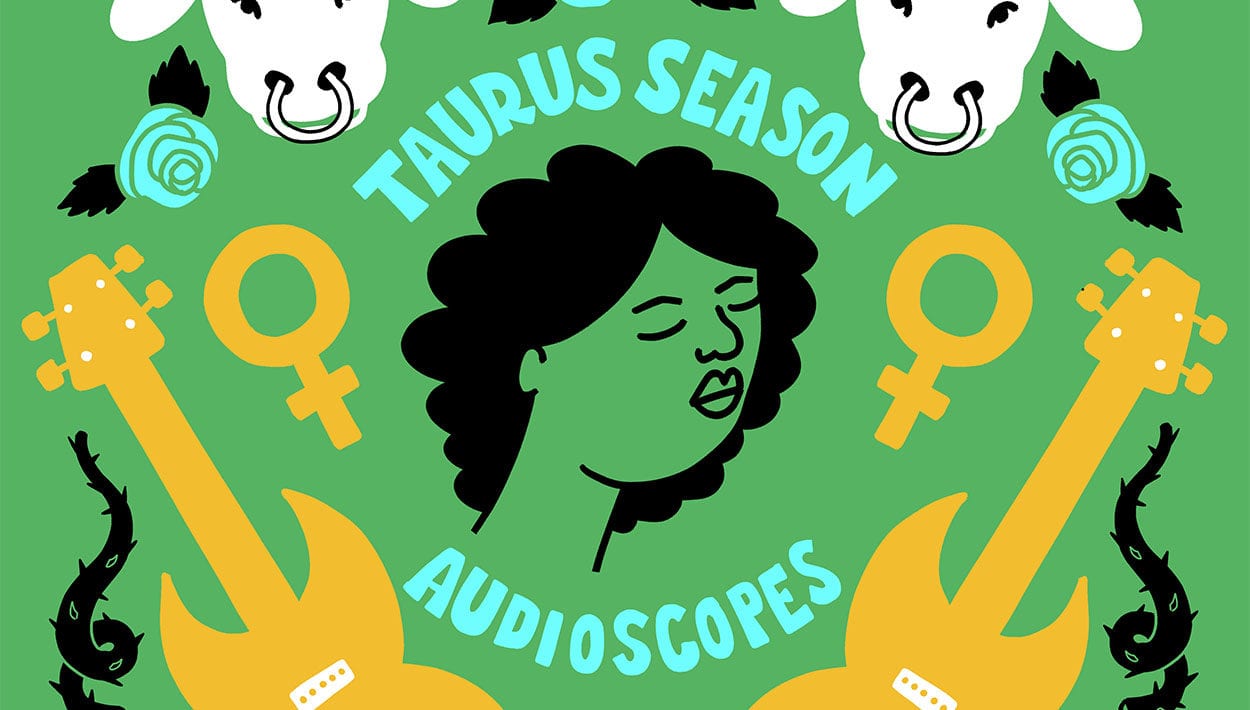


Comments
The crowd immediately applauded and broke out in cheers as they revered the powerful presence that hijacked their night. super mario bros
Comment by Christen Kincaid on November 13, 2018 at 7:05 am[…] his portraits of fellow artists — similar to efficiency artist Sebastián Hernández and singer San Cha, each from L.A. — dwell not in victimhood however in swish […]
Pingback by Two artists from L.A. and Tijuana. Two visions of the border – KnoWhere America News on November 29, 2019 at 10:16 am[…] of fellow artists — such as performance artist Sebastián Hernández and singer San Cha, both from L.A. — dwell not in victimhood but in graceful […]
Pingback by Two artists — from L.A. and Tijuana — present their visions of the border at MASS MoCA - St0rytime on November 30, 2019 at 10:45 amYour share is the great knowledge I have gathered, you are an important person I admire, thank you enable flash in chrome
Comment by run 3 on February 24, 2020 at 7:39 pmThe crowd immediately applauded and broke out in cheers as they revered the powerful presence that hijacked their night.
Comment by Macivris xelosani on June 23, 2021 at 6:34 amMake your money work harder for you – learn about investment management services today! Find the right investment manager for you – discover our selection of investment management services today.
Comment by Susmit on January 26, 2023 at 5:00 am